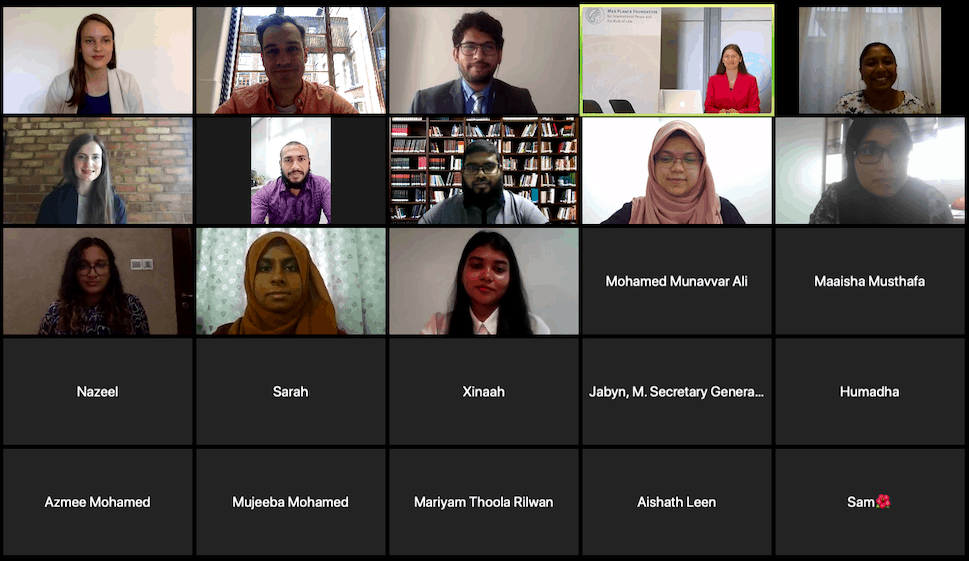Over 50 Maldivian lawyers and law graduates participated in this six-day online training.
In response to the ongoing COVID-19 crisis, the Max Planck Foundation adapted planned activities to take place online on the Foundation’s LEARN platform. This includes the online course, “Fair Trial Rights for Lawyers” in cooperation with the Bar Council of the Maldives. The course required live engagement from 1 to 6 July 2020, and aimed to increase the knowledge of the participants on fair trial rights in both international and domestic law and encourage reflection on the role of lawyers in protecting and upholding such rights. Over 50 lawyers and law graduates, including State lawyers and private lawyers, attended the online course.
Beyond examining specific fair trial rights, the course encouraged participants to consider the way that lawyers may enhance access to justice more generally in the Maldives. This complements the ongoing work performed by the newly established Bar Council of the Maldives in creating paralegal networks and establishing clearing houses.
The course commenced with presentations by the Foundation’s Research Fellows on fair trial rights which are applicable both before and during trials, and are protected by both international and domestic law. Participants were asked to consider rights, such as the rights to be presumed innocent, to a public hearing, and to challenge evidence presented at trial, through interactive workbooks and activities. Through robust forum discussions on LEARN, the participants discussed the various actors in the justice system involved in protecting fair trial rights and considered the role that lawyers play where violations of fair trial rights occur and how to address them.
The course required participants to listen to a podcast, recorded by Research Fellows from the Foundation, which examined the concept of access to justice and explored the barriers that particularly vulnerable groups, such as women, children and persons with disabilities, may face when attempting to fully access justice. By examining factual scenarios, the participants were asked to determine how differing social, cultural, geographic and legal positions of individuals may impact how they experience justice.
Finally, on 06 July 2020, the course concluded with an engaging live video conference attended by a local Expert, Ms Dheebanaz Fahmy, Former Deputy Prosecutor General and practicing lawyer in the Maldives. Ms Fahmy highlighted the relationship between the protection of fair trial rights and respect for professional ethics and provided participants with practical examples to situate the course content within the Maldivian context. Particularly lively discussions were held on the topics of the right to adequate time and facilities to prepare a defence, the right to be charged in a language that an accused can understand, and the difficulties involved in balancing the role played by the media in protecting fair trial rights with other rights, which may be implicated due to irresponsible media reporting or discussions on social media. Ms Mariam Jabyn, Secretary General of the Bar Council of Maldives, made brief remarks about the mechanisms that the Bar Council seeks to establish to protect fair trial rights and access to justice and encouraged participants to engage fully with these initiatives.
The “Fair Trial Rights for Lawyers” course is the second in a series of three online courses for lawyers in cooperation with the Bar Council of the Maldives. The first course in this series, “Ethics for Lawyers” took place from 28 to 30 June 2020 and the third course, “A Guide to Strategic Litigation” will take place from 7 to 9 July 2020. This series of activities is implemented through the partnership with the Bar Council of the Maldives as part of the German Federal Foreign Office funded project, “Strengthening the Rule of Law in the Maldives”.

